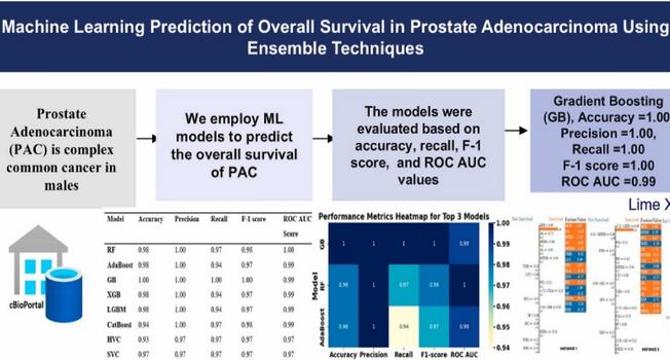Bioengineer
5d
130

Image Credit: Bioengineer
Researchers Create AI Technique to Forecast Prostate Cancer Patients’ Overall Survival Rates
- Researchers have developed a machine learning framework for precise survival predictions in prostate adenocarcinoma patients, addressing challenges posed by the cancer's heterogeneous nature.
- Utilizing ensemble learning techniques, eight machine learning models were rigorously evaluated using data from The Cancer Genome Atlas PanCancer Atlas.
- Gradient Boosting emerged as the top-performing model, achieving exceptional accuracy, precision, recall, and ROC-AUC scores.
- Other models like Random Forest and AdaBoost also demonstrated significant predictive abilities, showcasing the value of ensemble strategies.
- Improving prognostic accuracy in prostate cancer is crucial due to its high mortality rates, emphasizing the need for precise survival estimation.
- Early detection and accurate survival predictions can enhance treatment outcomes and guide personalized care strategies in prostate adenocarcinoma patients.
- Integration of ensemble machine learning models offers a promising approach to address the complexity of survival prediction in prostate cancer and improve patient prognosis.
- The study underscores the importance of validating findings on larger datasets and conducting prospective clinical trials to ensure real-world efficacy and ethical integrity.
- Ensemble machine learning techniques represent a frontier in healthcare that can potentially redefine prognostic paradigms in oncology and enhance personalized medicine.
- With a focus on computational intelligence and data-driven predictive techniques, the research highlights the potential of AI-powered tools to transform prostate cancer management.
- This innovative research showcases how ensemble machine learning models, particularly Gradient Boosting, can revolutionize survival prediction accuracy in prostate adenocarcinoma, leading to improved patient outcomes.
Read Full Article
7 Likes
For uninterrupted reading, download the app